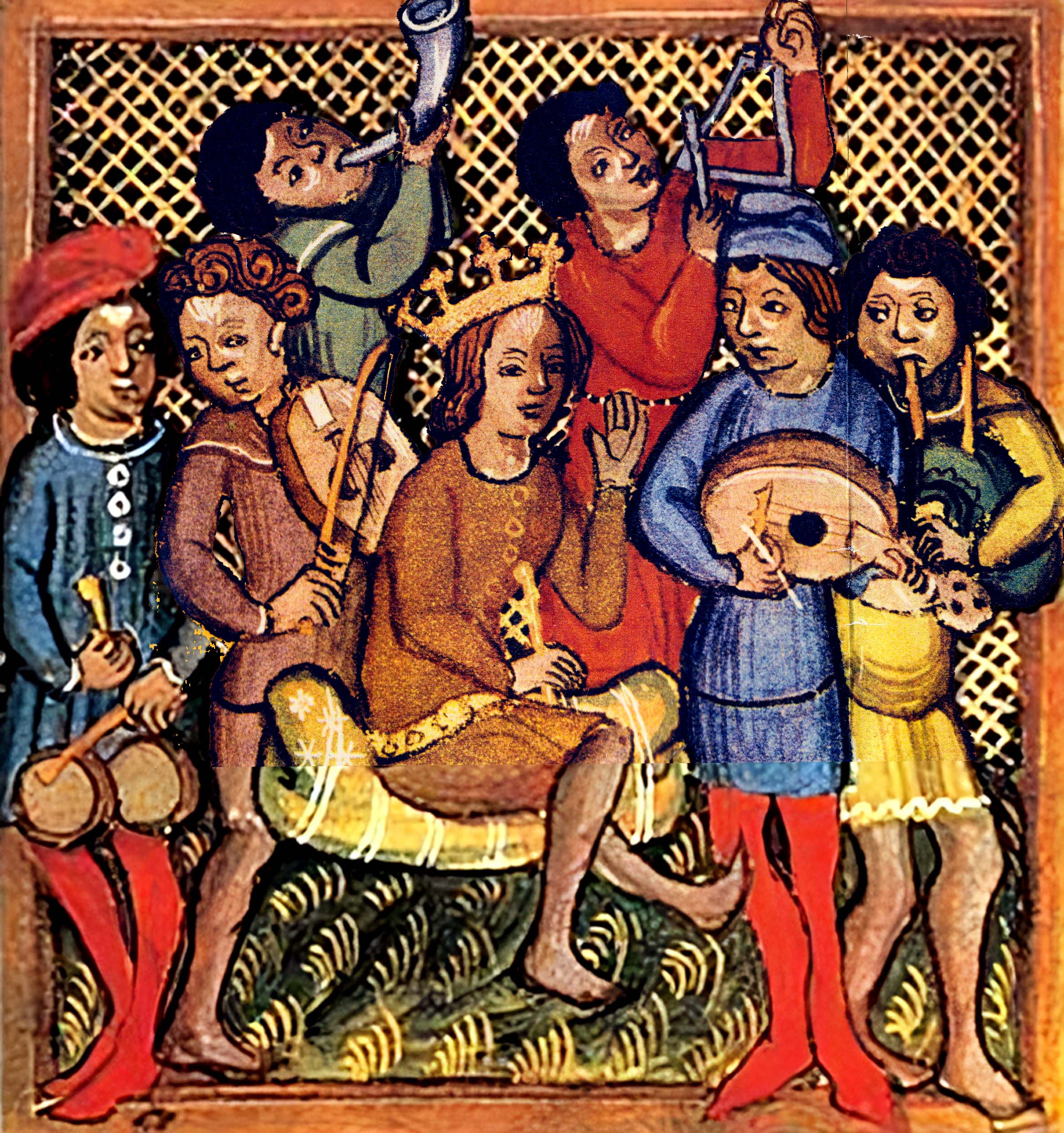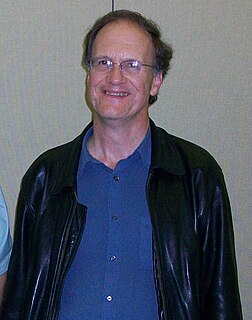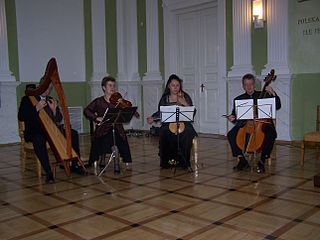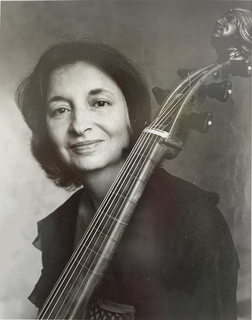
Medieval music encompasses the sacred and secular music of the Western Europe during the Middle Ages, from approximately the 6th to 15th centuries. It is the first and longest era of Western classical music and followed by the Renaissance music; the two eras comprise what musicologists term as early music, preceding the common practice period. Following the traditional divisions of the Middle Ages, medieval music can be divided into Early (500–1150), High (1000–1300), and Late (1300–1400) medieval music.

Ars nova refers to a musical style which flourished in France and the Burgundian Low Countries in the late Middle Ages: more particularly, in the period between the preparation of the Roman de Fauvel (1310s) and the death of composer Guillaume de Machaut in 1377. The term is sometimes used more generally to refer to all European polyphonic music of the fourteenth century. For instance, "Italian ars nova" is sometimes used to denote the music of Francesco Landini and his compatriots. The "ars" in "ars nova" can be read as "technique", or "style". The term was first used in two musical treatises, titled Ars novae musicae by Johannes de Muris, and a collection of writings attributed to Philippe de Vitry often simply called "Ars nova" today. However, the term was first used to describe an historical era only by Johannes Wolf in 1904.

The Roman de Fauvel is a 14th-century French allegorical verse romance of satirical bent, generally attributed to Gervais du Bus, a clerk at the French royal chancery. The original narrative of 3,280 octosyllabics is divided into two books, dated to 1310 and 1314 respectively, during the reigns of Philip IV and Louis X. In 1316–7 Chaillou de Pesstain produced a greatly expanded version.
Solage, possibly Jean So(u)lage, was a French composer, and probably also a poet. He composed the most pieces in the Chantilly Codex, the principal source of music of the ars subtilior, the manneristic compositional school centered on Avignon at the end of the century.
Joel Cohen is an American musician specializing in early music repertoires. Cohen graduated from Classical High School in Providence, Rhode Island. in 1959, and Brown University in 1963. He continued graduate education at Harvard University. From 1968 to 2008 he was the director of the Boston Camerata, a prominent American early music ensemble. He remains connected to the Boston Camerata as Music Director Emeritus. Cohen founded the Camerata Mediterranea in 1990 and incorporated it as a nonprofit research institute in France in 2007. He performs on lute and guitar and sings, but is best known as an organizer and creator of concert programs and sound recordings. He has also written extensively on musical topics. In recent years Cohen's research and performance activities have centered on early American repertoires, as well as southern European repertoires of the Middle Ages. Many of his projects in this latter category involve collaboration with Middle Eastern musicians.
Anne Azéma is a French-born soprano, scholar, and stage director. She is currently artistic director of the Boston Camerata. She has been an important or leading singer of early music since 1993. She has created and directed programs for the Boston Camerata and is also noted as a music scholar. She is perhaps best known for performing music from the Middle Ages, lute songs from the Renaissance period, Baroque sacred music, Shaker song, and contemporary music theater. She is also a music educator and a researcher. She has performed in Japan, Germany, the US, Australia and elsewhere.

The Song of the Sibyl is a liturgical drama and a Gregorian chant, the lyrics of which comprise a prophecy describing the Apocalypse, which has been performed in churches on Majorca and Alghero, and some Catalan churches, in the Catalan language on Christmas Eve nearly uninterruptedly since medieval times. It was declared a Masterpiece of the Oral and Intangible Heritage of Humanity by UNESCO on 16 November 2010.

Luar na Lubre is a Celtic music ensemble from Galicia, Spain.

Robert Harry Kyr is an American composer, writer, filmmaker, and Philip H. Knight Professor of Music Composition and Theory.
The Play of Daniel, or Ludus Danielis, is either of two medieval Latin liturgical dramas based on the biblical Book of Daniel, one of which is accompanied by monophonic music.

The Ars Nova Singers is a choral ensemble based in Boulder, Colorado, USA. Founded in 1986, Ars Nova Singers is composed of about 40 selectively auditioned singers from the Boulder / Denver metropolitan area. Ars Nova has achieved significant national recognition, recording ten critically acclaimed solo recordings as well as performing on seven recordings with Boulder composer and instrumentalist Bill Douglas (musician).
Oliphant is a Finnish band playing medieval music.
Camerata Mediterranea is a French and American nonprofit organization and an international, intercultural institute of musical exchanges. Camerata Mediterranea devotes itself to research, dialogue, and pedagogy involving the diverse musical civilizations of the Mediterranean basin, Christian, Jewish, and Muslim. It aims to revive the value of forgotten interactions and intends to reestablish a dialogue, at once artistic, intellectual and human, among civilizations.
Crawford Young is an American lutenist and musicologist residing in Basel, Switzerland. He is the director of the Ferrara Ensemble, Ensemble Project Ars Nova, Shield of Harmony, and is a long time accompanist of Andreas Scholl
Robert Mealy is a performer and teacher of baroque violin. He holds a joint position at the Yale School of Music and the Department of Music of Yale University, where he directs the Yale Collegium Musicum and teaches classes in musical rhetoric and historically-informed performance. He has recorded over 50 CDs of early music, ranging from Hildegard of Bingen with Sequentia, to Renaissance consorts with the Boston Camerata, to Rameau operas with Les Arts Florissants. At home in New York, he is a frequent leader and soloist with the New York Collegium, Early Music New York, the Clarion Music Society, and the ARTEK early music ensemble.
The Boston Camerata is an early music ensemble based in Boston, Massachusetts. It was founded in 1954 by Narcissa Williamson, at the Museum of Fine Arts, Boston, as an adjunct to that museum's musical instrument collection.

Hanacpachap cussicuinin is a processional hymn to the Virgin Mary in the Quechua language but in a largely European sacred music style. Composed by Juan Pérez de Bocanegra between 1620 and 1631, a Franciscan priest, published in 1631 in the Viceroyalty of Peru making it the earliest work of vocal polyphony printed in the New World.

Ars Nova is a Polish early music instrumental ensemble founded in Warsaw in 1981 by pl:Jacek Urbaniak.

Judith Davidoff is an American viol player, cellist, and performer on the medieval bowed instruments. Her recorded performances reflect her wide range of repertoire and styles, including such works as Schoenberg's Verklaerte Nacht and 13th-century monody. She is responsible for the catalog of 20th- and 21st-century viol music.










